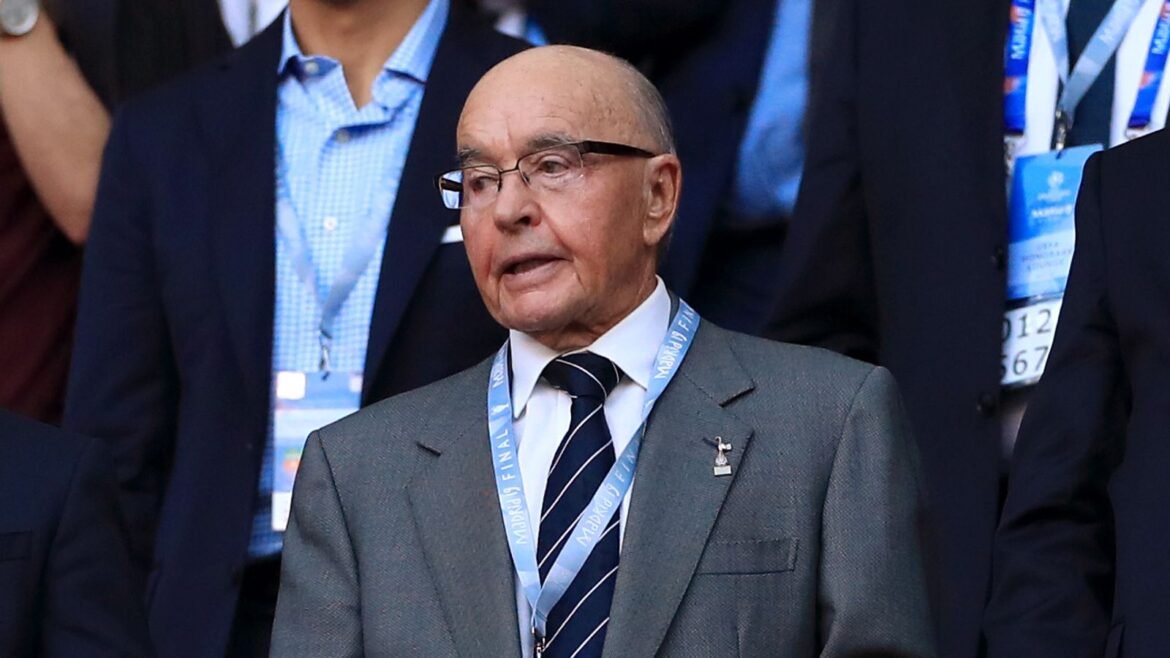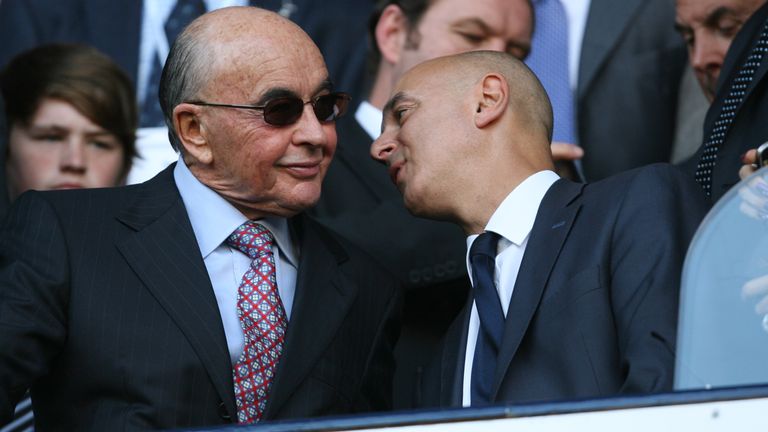Former Tottenham Hotspur owner Joe Lewis has admitted to three charges in relation to insider training in the United States.
The 86-year-old pleaded guilty to one count of conspiracy to commit securities fraud and two counts of security fraud.
He pleaded not guilty to 14 counts of security fraud and two counts of conspiracy, for alleged crimes spanning from 2013 to 2021.
Lewis told the New York court on Wednesday: “I am so embarrassed and I apologise to the court for my conduct.”
He was charged in July 2023 with passing inside information on his portfolio companies to two of his private pilots as well as friends, personal assistants and romantic partners.
This enabled them to reap millions of dollars in profit, according to prosecutors.
He said he knew at the time that what he was doing was wrong.
The businessman founded the investment firm Tavistock Group and is worth an approximate $6.2bn (£4.8bn), according to Forbes.
Lewis no longer has any involvement in Tottenham – he ceased to be a person with significant control of the club on October 5 2022.
Lewis is expected to be sentenced on March 28.
Who is Joe Lewis?
Joe Lewis owns the Tavistock Group, with more than 200 assets across 13 countries, and the UK pub operator Mitchells & Butlers. Forbes puts his wealth at £4.65bn.
He bought a controlling stake in the Premier League club Tottenham from Alan Sugar for £22m in 2001.
He now lives in the Bahamas, a far cry from his humble beginnings in London’s East End.
Lewis was born above a pub in Roman Road, Bow. He left school at 15 to help run his father’s West End catering business, Tavistock Banqueting. He sold the business in 1979, forming the basis of his initial fortune, before moving into currency trading.
In 1992, he allegedly teamed up with American billionaire George Soros to bet on the pound crashing out of the European Exchange Rate Mechanism (EERM).
Black Wednesday, as it became known, sank sterling and forced the British government to withdraw the pound from the EERM.


